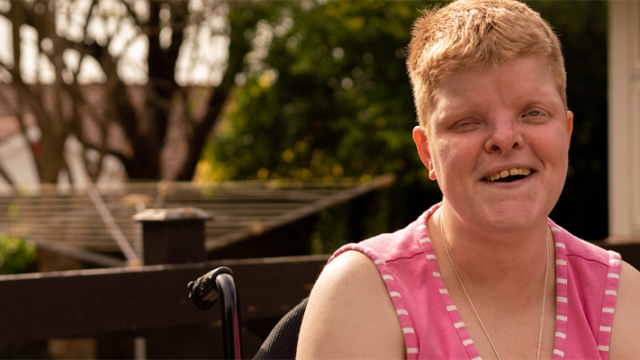
How to live well at home
Feeling satisfied with where we live is important when it comes to living a good life. Both humans and animals create their own home environments as a safe place to eat, have children and rest. And through evolution, our DNA has retained the importance of home. We all now place a lot of importance in our homes and so they are incredibly important to our wellbeing.
“After we have been travelling a long while, after too many nights in hotel rooms or on the beds of friends, we typically feel a powerful ache to return to our own furnishings, an ache that has little to do with material comfort [...]. We need to get home to remember who we are.” - The School of Life
Why is our home important to us?
- Our home provides a sense of safety and security - both physically and mentally.
- Our home gives us a sense of identity and allows us to express ourselves with the choices we make for it.
- Our home is where we store memories. It allows us to create memories whilst we are there and a space to showcase older memories visually.
- Our home allows us to have privacy, which is fundamental to our personal dignity and sense of self.
What can you do to live well at home?
Ask yourself - Is your home working for you?
We don’t often consider what effect our home is having on our wellbeing. You can get started by asking yourself these questions:
- How does your home make you feel?
- Does your home have everything you need?
- Is there one thing that could help you feel happier in your home?
Finding balance
As with anything, if there’s something about where you live that makes you unhappy it can be easy to focus on this and forget about what you like. So consider, what works well for you? Have you created good memories whilst living there? When we appreciate the positive things about our home, we can take a balanced approach to what we’d like to change. We have worked with LifeClubs to create a free balance chart that you can use to take a balanced approach.
Fill your home with things that bring you happiness
From the colour of your walls to your furniture and pictures, fill your home with items that you love and that make you feel happy when you see them. You could include some candles with your favourite scent for an even more uplifting experience when you’re at home. There are a lot of resources out there that tell us what we should have in our homes. But try and ignore trends - this is your home. Make it a display of you and the things you like.
Let the light in
Natural light is important for the production of serotonin (the chemical that stabilises our mood, promotes wellbeing and happiness). If you let natural light in, especially in the morning, it’s been shown to increase your levels of concentration and also helps you to sleep better. Natural light is also an essential source of vitamin D, which helps your body to fight disease and keeps your bones and muscles healthy.
A piece of nature indoors
Houseplants don’t just look nice, they can be great for your health and for improving the air quality in your home. Having plants in your indoor space has been shown to improve your mood and reduce stress levels. If you don’t want to commit to looking after a needy plant, why not try a succulent? They offer needed greenery, but are used to living in deserts so won’t mind if you forget to water them.
Meet your needs
The most important part of your home is to ensure that it’s meeting your needs. Standard furniture isn’t always made with personal needs in mind, so you may have to look for items that really meet your needs. For example, a bed or a desk that rises up or down can be helpful for people with reduced mobility. Or you might want to install handles or a toilet riser in your bathroom to make those activities more comfortable. Whatever your needs, make sure that your home meets them as best it can.
Insights from SeeAbility Influencer Emily
We asked one of our influencers with lived experience, Emily, about her home and the things she has done to make it better for her wellbeing.
“It’s important to remember that what’s comfortable for one person isn’t for another.”
Emily told us that there is nothing in her home that isn’t comfortable, apart from her dining chairs, but she finds a way around it by sitting in her wheelchair. Comfort is different for every person, so it’s important to think about what works best for you.
She also explained that she likes to get outside into her garden but there is a step that is difficult to get over and often makes the journey too difficult. To improve her ability to live well at home, she would like to have a ramp so that she can access her garden easily.
“My nan liked to read to me.”
Emily has surrounded herself at home with things that mean a lot to her, including her books because her nan liked to read to her and she remembers this fondly whilst reading. When she is choosing a new book, Emily visits a bookshop and the blurb is read to her so that she can make her choice from there.
“Be honest, don’t hold back and say what you need”
We asked Emily what she would suggest for others who wanted to improve their homes. She told us that it’s important to explain how your home needs to be adapted for you specifically. Everyone has different needs and it’s important to be honest with what your needs are - don’t hold back.


